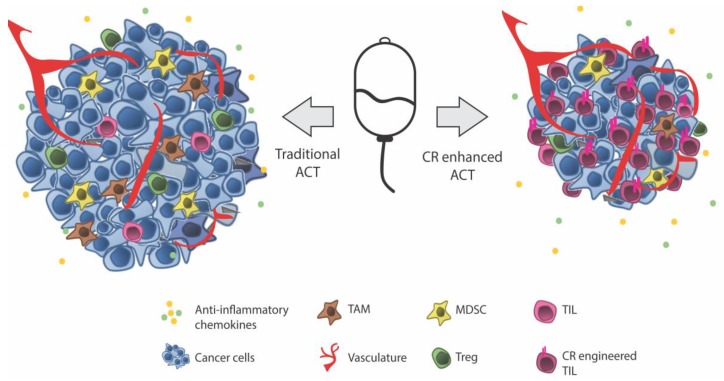Figure 1.
ACT of autologous in vitro expanded T cells (TIL, CAR and TCR T cells). ACT relies on the efficient homing of transferred T cells to the tumor site. The cells of the tumor secrete chemokines supports tumor growth and immune evasion by diverting anti-tumor immune cells. Thus, the tumor is characterized by an environment of infiltrating Tregs, TAM, and MDSC expressing inhibitory receptors and secreting immune suppressive cytokines and factors and only few dysfunctional anti-tumor T cells. (Left) Traditional ACT relies on endogenous chemokine receptors expressed on infused T cells to enable homing to the tumor site. (Right) Chemokine receptor engineered T cells, which express a selection of chemokine receptors matching the tumor chemokines, are thought to improve the homing of transferred T cells to the tumor site. As a consequence, more anti-tumor T cells reach the tumor and by “outnumbering” the immune suppressive mechanisms might overcome immune suppression and improve the anti-tumor response of ACT. Abbreviations: ACT—Adoptive cell therapy, CR—Chemokine receptor, MDSC—Myeloid derived suppressor cell, TAM—Tumor associated macrophage, TIL—Tumor Infiltrating lymphocyte (here representing anti-tumor T cells), Treg—Regulatory T cell.

